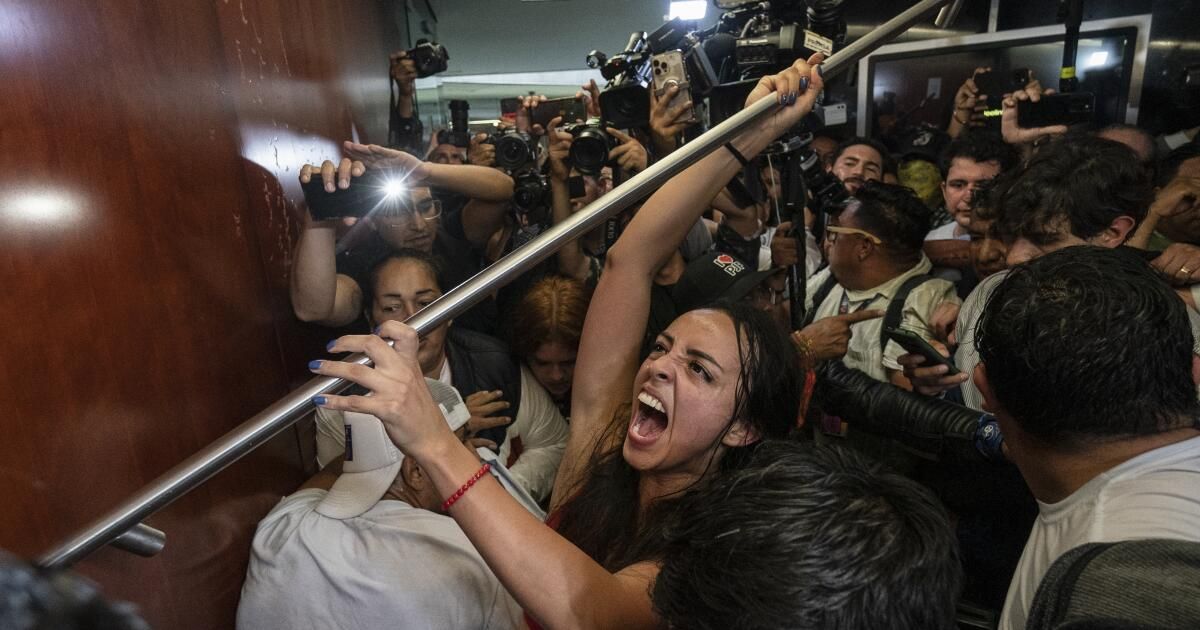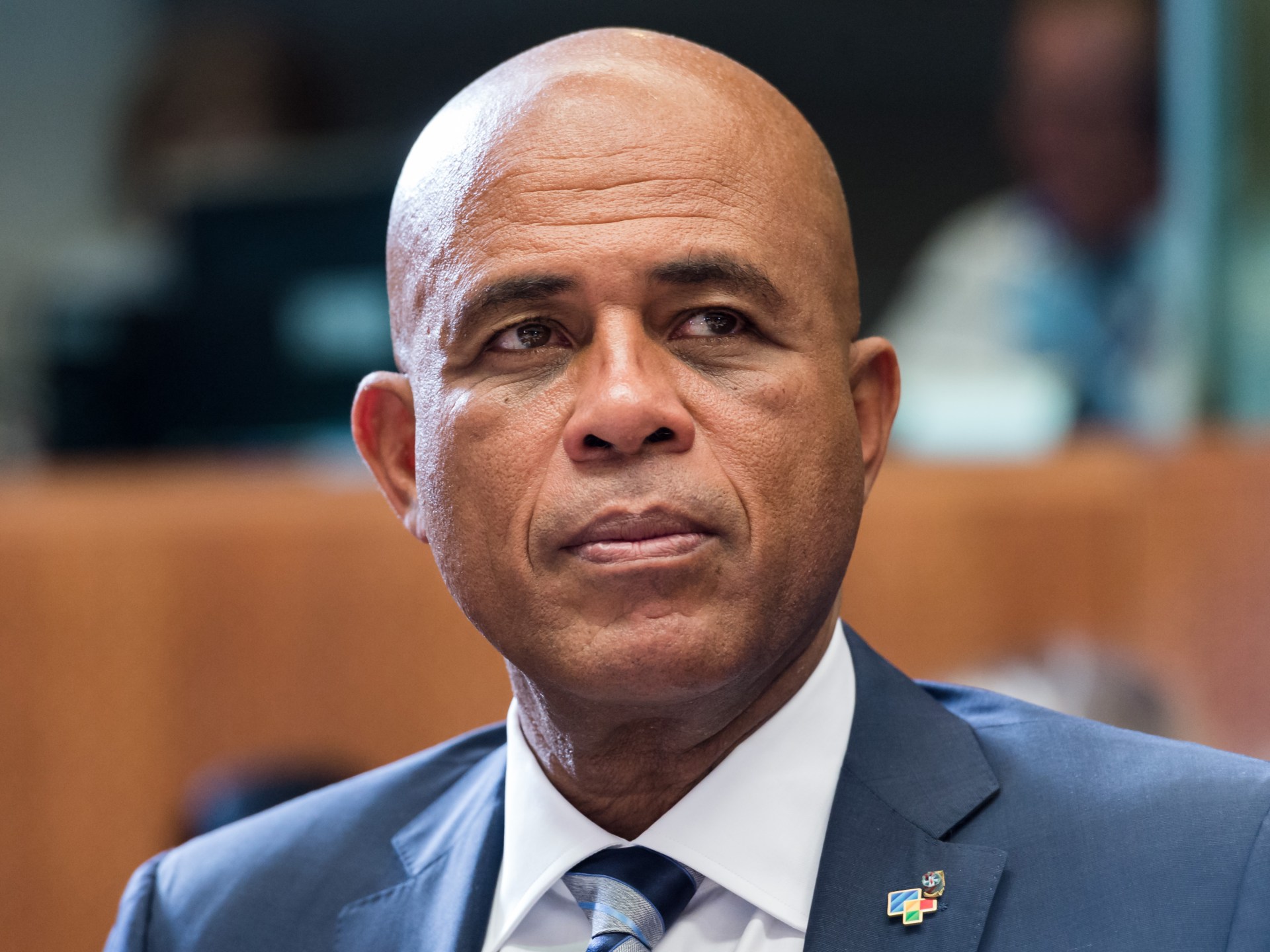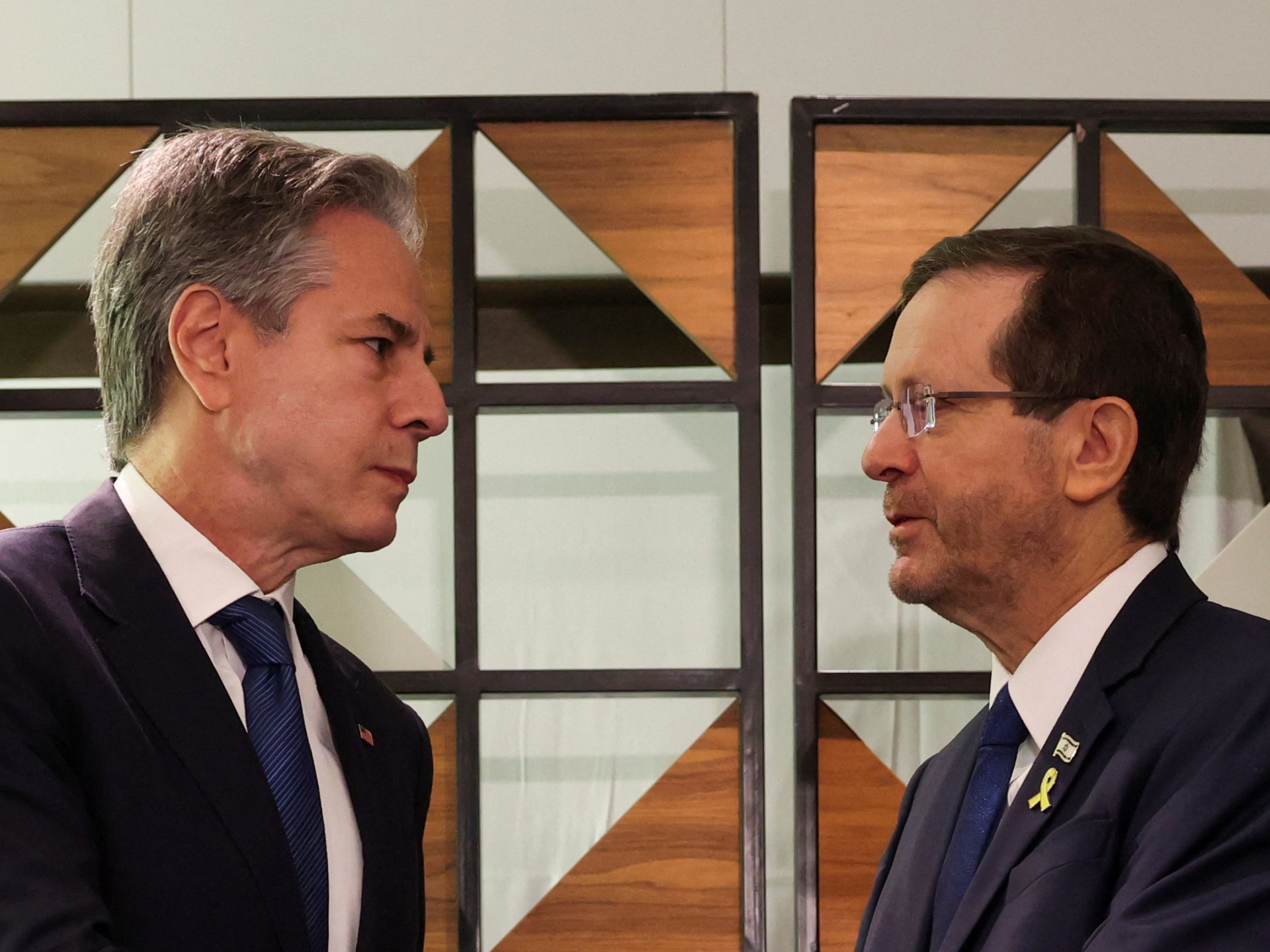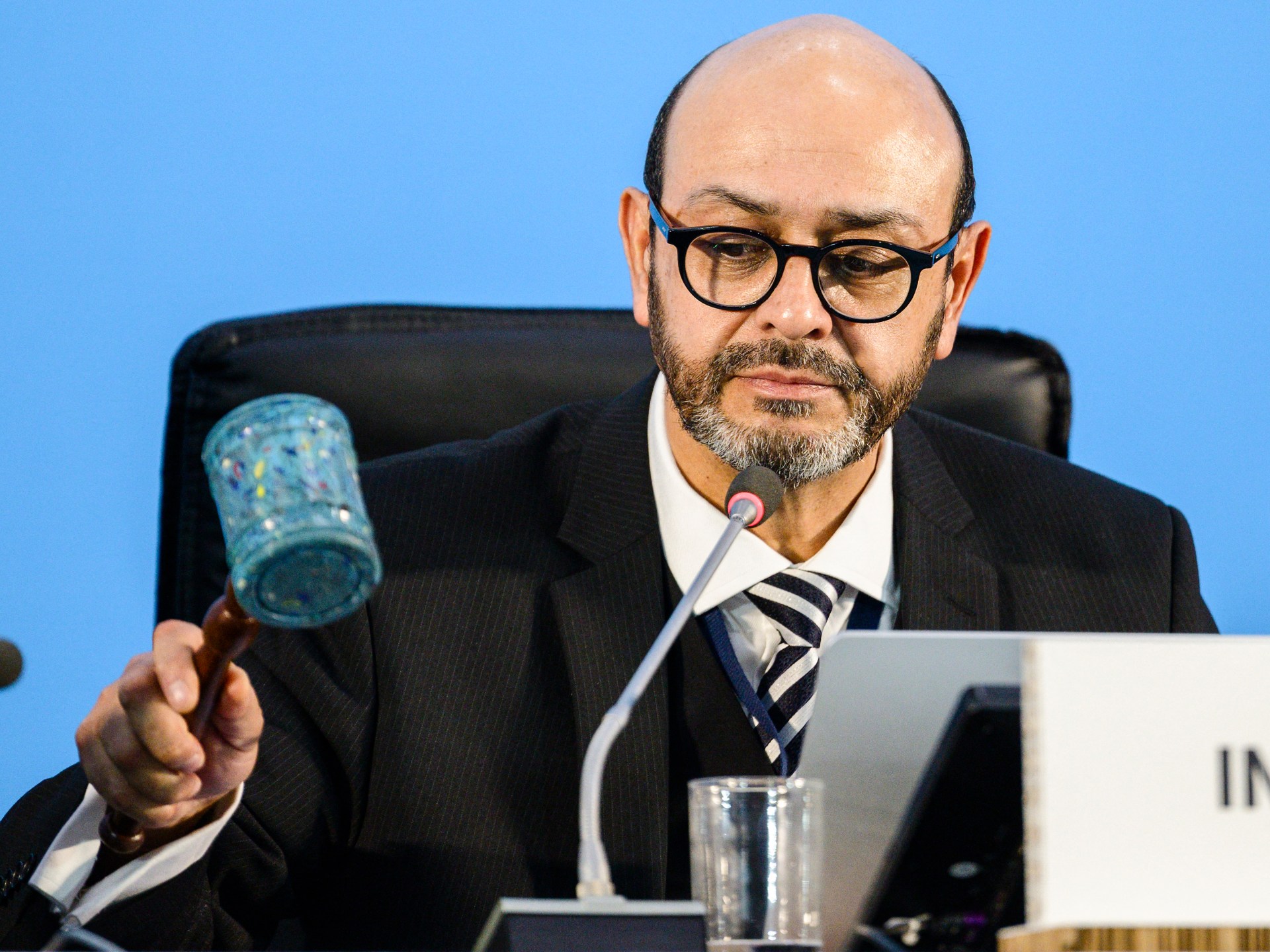Amid dramatic protests, with hundreds of demonstrators storming the Mexican Senate floor, lawmakers on Wednesday morning approved a controversial constitutional change requiring the country's judges to be elected by popular vote.
The narrow passage of the proposal is a major victory for outgoing President Andrés Manuel López Obrador, a populist who has repeatedly clashed with Mexico’s courts during his six years in office and who insists that a radical overhaul of the judicial system is needed to make judges more accountable to the people.
The president’s proposal has met with widespread opposition, with legal experts, business leaders and even many of his leftist allies saying it will undermine democratic checks and balances and strengthen the power of the ruling Morena party. Thousands of Mexican judges have been on strike in protest in recent weeks, paralyzing the country’s legal system. The peso has plummeted amid concerns that the reform could discourage foreign investment.
On Tuesday night, as lawmakers met to consider the proposal, hundreds of court workers and their supporters used pipes and chains to storm the Senate chambers in an effort to block the vote.
“They have decided to sell out the nation,” Alejandro Navarrete, a 30-year-old judicial worker, told The Associated Press. “We want to make it clear that the Mexican people will not allow us to be led into a dictatorship.”
Protesters in Mexico City attempt to break into a Senate chamber as lawmakers consider the government's proposed judicial reform.
(Félix Márquez / Associated Press)
The protesters were eventually dispersed. Although Morena did not have the absolute majority in the Senate necessary to approve a constitutional change, its leaders managed to convince several senators from opposition parties to support the reform.
“This ruling reflects the desire of the people of Mexico to improve judicial procedures and encourages an inclusive and sensitive approach,” said Ernestina Godoy, a senator from Morena. “All public power comes from the people and is instituted for their benefit.”
Last week, the Chamber of Deputies approved the president’s proposal, with lawmakers forced to gather in a sports stadium because the doors to their headquarters had been blocked by angry protesters. To become law, the constitutional reform must be approved by a majority of Mexico’s state legislatures, most of which are currently controlled by Morena.
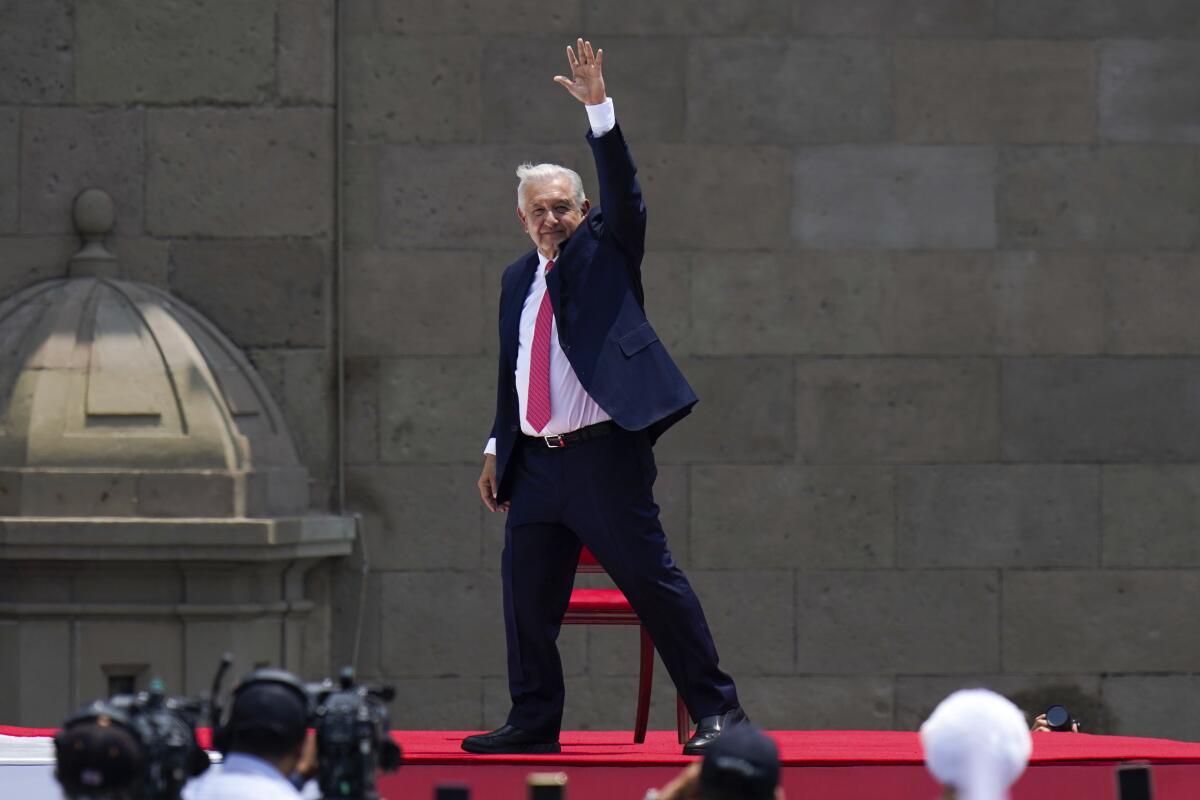
President Andrés Manuel López Obrador greets supporters in Mexico City's Zócalo this month.
(Félix Márquez / Associated Press)
López Obrador's proposal would force the country's entire judiciary — some 7,000 judges — to stand for election.
In Mexico's current judicial system, those aspiring to become federal judges must undergo training, pass public exams and be evaluated by a supervisory board. The president nominates three candidates for each vacancy on the Supreme Court and the Senate approves one.
Under the new reform, eligibility for some judgeships would require a law degree and a letter of recommendation from someone. A committee would select candidates before placing them on the ballot. It is unclear how many candidates could run in a given race.
Meanwhile, the number of justices on the Supreme Court would be reduced from 11 to nine, and their terms would be shortened from the current 15 to 12 years.
Critics of the plan warn that elections would turn judges from impartial interpreters of the law into political actors who could make decisions to win votes or please campaign donors, including criminal organizations.
López Obrador pushed the plan after several of his key legislative efforts, including a proposal to cede control of the National Guard to the military and another to increase the government’s role in the energy sector, were blocked by judges he says are corrupt.
The proposal has drawn widespread criticism from Mexico's trading partners, international rule of law experts and even the Catholic Church. Church leaders in Mexico said this week that they were praying that senators would reflect on the responsibility before them and warned that the new system could further deprive victims of crime in Mexico of the possibility of obtaining justice.
Critics are concerned about the proposal because López Obrador’s Morena party has an overwhelming majority in Congress. If voters elect party-friendly judges, Morena would essentially control all three branches of government. Some have warned it would return Mexico, which was ruled by a single party for most of the 20th century, to a one-party state.
Read more Coverage of Mexico and the Americas.

